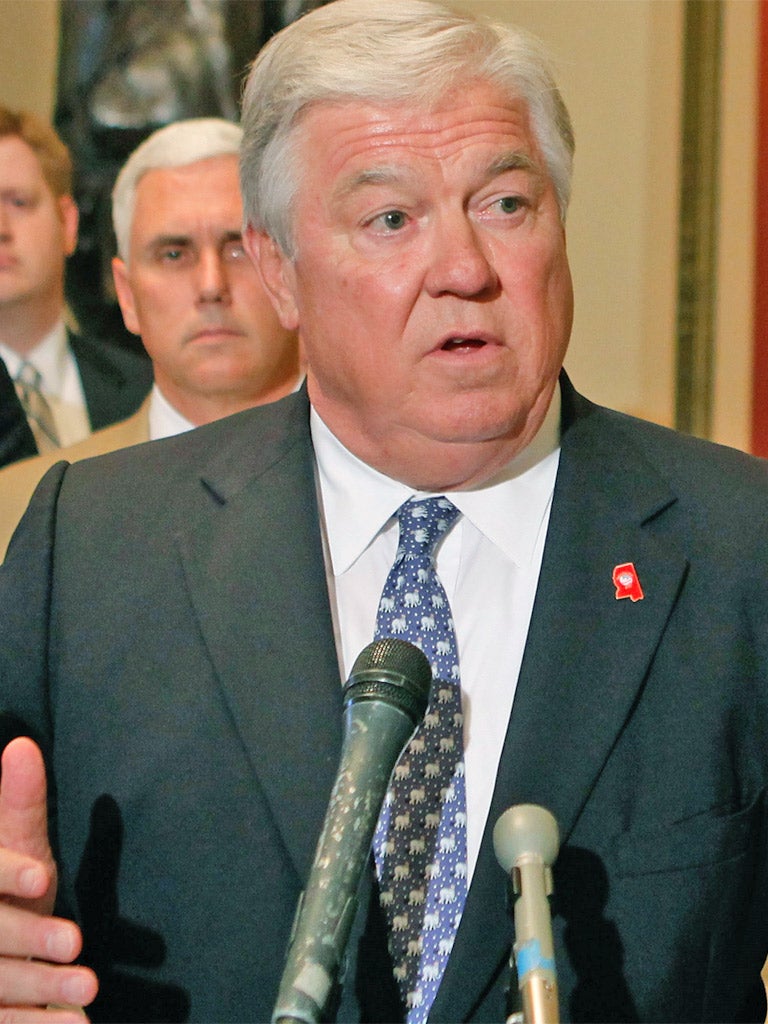Pardon? Governor sparks outcry by letting off 200 criminals
Rapists and murderers benefit as former Mississippi hardliner has extraordinary conversion

Your support helps us to tell the story
From reproductive rights to climate change to Big Tech, The Independent is on the ground when the story is developing. Whether it's investigating the financials of Elon Musk's pro-Trump PAC or producing our latest documentary, 'The A Word', which shines a light on the American women fighting for reproductive rights, we know how important it is to parse out the facts from the messaging.
At such a critical moment in US history, we need reporters on the ground. Your donation allows us to keep sending journalists to speak to both sides of the story.
The Independent is trusted by Americans across the entire political spectrum. And unlike many other quality news outlets, we choose not to lock Americans out of our reporting and analysis with paywalls. We believe quality journalism should be available to everyone, paid for by those who can afford it.
Your support makes all the difference.During his time in office, Haley Barbour, the conservative Governor of Mississippi, signed off the execution of nine residents on the state's Death Row.
That was then. Freed from the burden of having to seek elected office, the one-time Republican presidential contender, appears to have undergone a sudden, Damascene conversion with regard to crime and punishment.
In the final days of his second and last spell in the governor's mansion, Mr Barbour decided to issue formal pardons to no less than 200 convicted criminals, including more than two dozen court-certified killers. His enthusiastic use of clemency laws has sparked huge controversy among both the families of crime victims and his core supporters, who point out that the list of pardoned convicts released on Tuesday includes a selection of rapists, murderers, and child sex offenders.
"I'm totally disgusted," said Glenda Walker, whose son, Randy was shot by one of the freed men, David Gatlin. "One man can't put you in jail. I don't think it's right for one man to remove you from jail." Randy died in 1993 alongside his friend Tammy Ellis Gatlin, David's estranged wife, who was holding a small child at the time of her death. "He left that little baby on his dead mother's body," added Ms Walker. "It was a horrendous murder."
Previous Mississippi governors have granted only a tiny handful of pardons; Mr Barbour's most recent predecessor, Ronnie Musgrove, issued just one during his term. Governor Barbour has so far refused to comment on the motives underpinning his decision to announce 200 pardons, telling reporters who tracked him down at the investiture of his successor, Republican Phil Bryant, that, "it's Phil's day".
At least four of the pardoned murderers on his list were personal acquaintances, however. They worked at the Governor's mansion as part of a prisoner "trustee" programme designed to reward inmates for good behaviour.
Also there was Azikiwe Kambule, a former death-row inmate convicted of a car-jacking in 1996. A teenager at the time, he initially protested his innocence, but eventually agreed to confess in exchange for a 35-year sentence. Meanwhile Karon Irby, a socialite believed to share mutual friends with Barbour, was freed just two years into an 18-year sentence. She had been convicted of manslaughter for killing two people in a drink-driving accident. Another beneficiary of his largesse was Earnest Scott Favre, the brother of Brett Favre, an American football star. He had been found guilty in 1997 of killing a close friend by accidentally driving in front of a train while drunk.
Like many (but not all) of the pardoned convicts, Favre has long ago served his sentence, so Barbour's decision to grant clemency is purely symbolic. However his vigorous use of the powers has focused an awkward light on the tradition of granting powers of clemency to governors and presidents.
Join our commenting forum
Join thought-provoking conversations, follow other Independent readers and see their replies
Comments